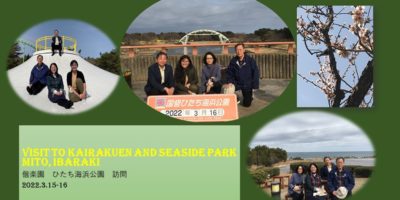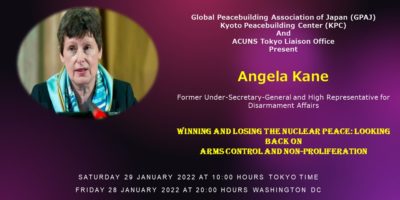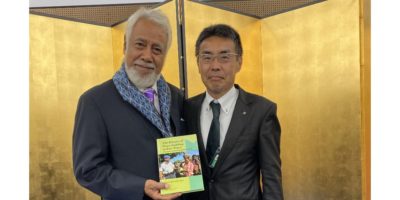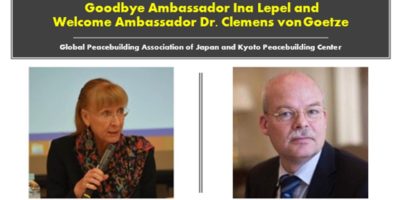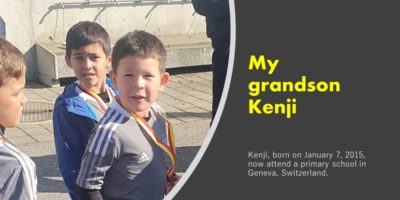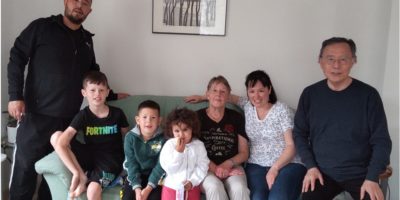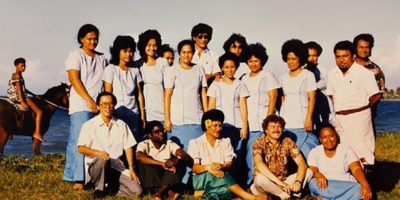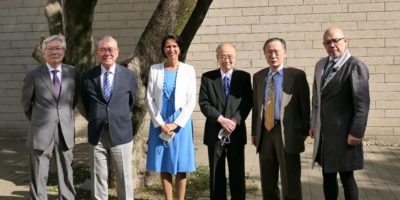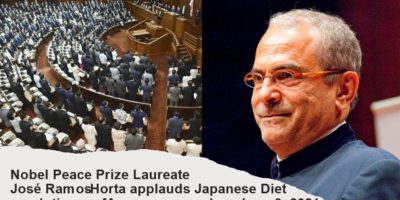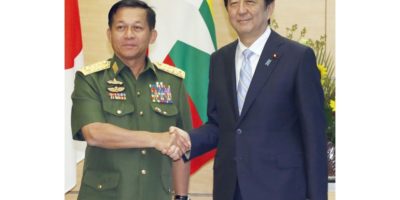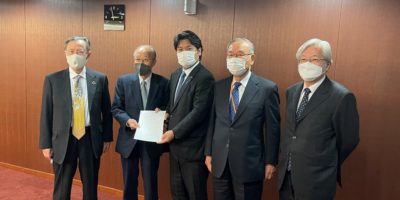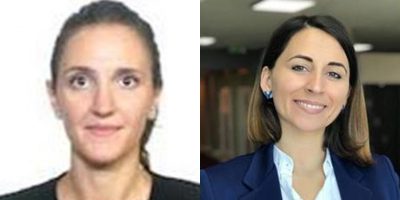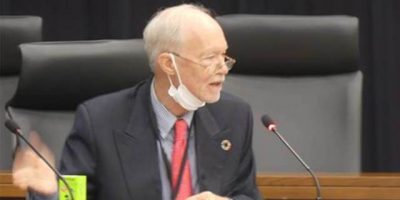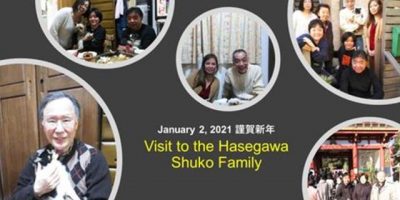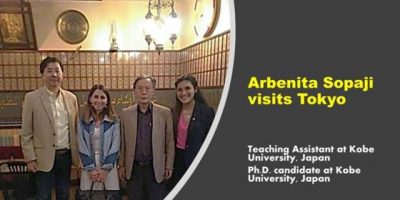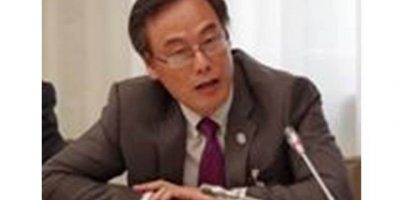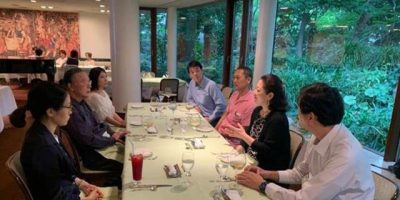GPAJ Vice President Mio Sato will be appointed as IOM Office Director in Pakistan next month, and her successor, GPAJ Vice President Kumagai, organized a farewell lunch. It was most enjoyable to have eight members get together at the restaurant for the first time in a long time and talk to each other directly. Yumiko Kaneko, a UNDP staff in the Philippines and a GPAJ member, joined us. From right: Ken Inoue, Vice President of GPAJ, Mio Sato, Director of IOM, Takaaki Mizuno, Professor of Kanda University of International Studies, Keiichi Tanabe, Professor of Tokai University, Yumiko Kaneko, UNDP staff, Sukehiro Hasegawa, GPAJ President, and Naoko Kumagai, Vice President and Professor at Aoyama Gakuin University.

